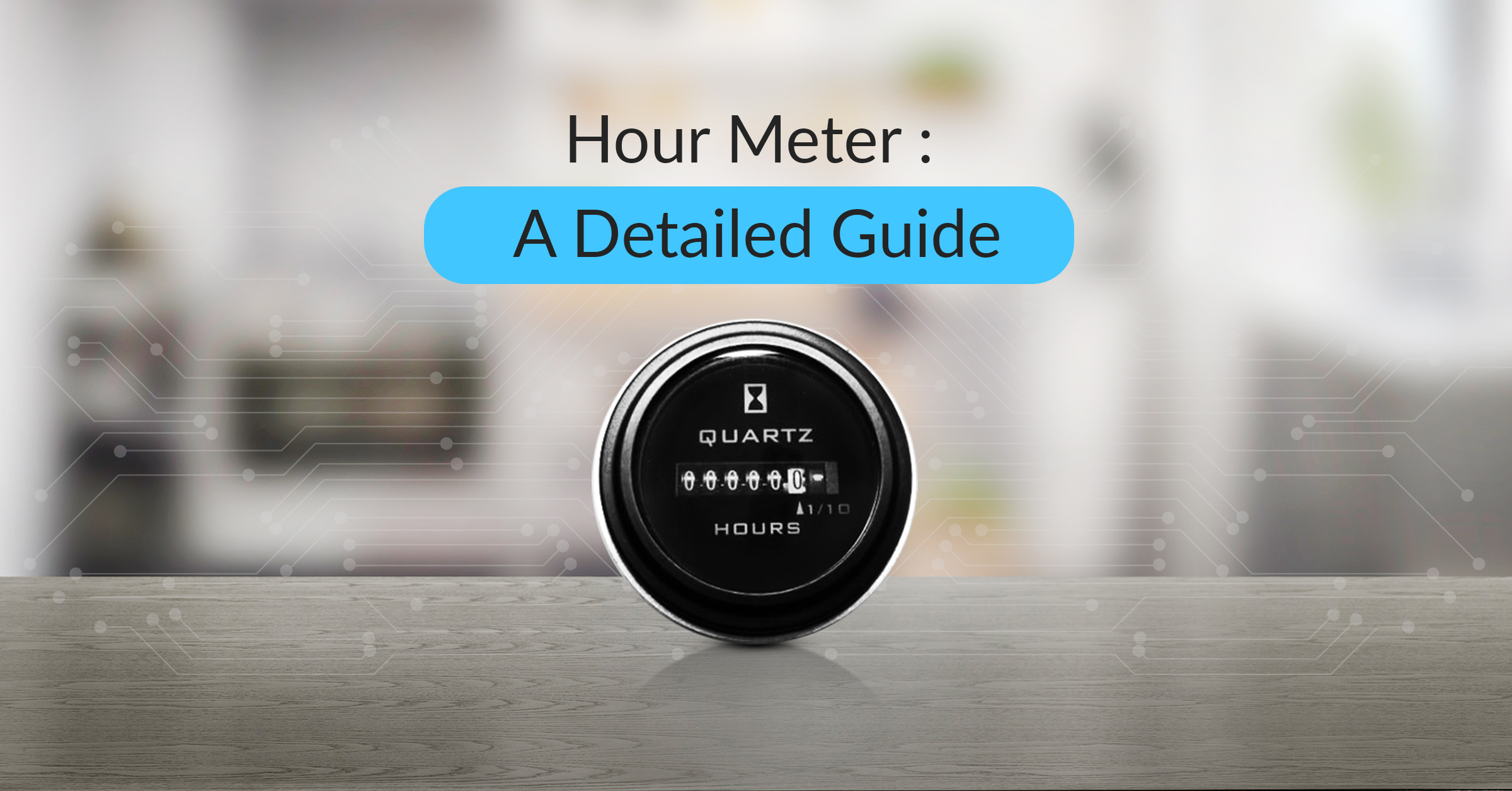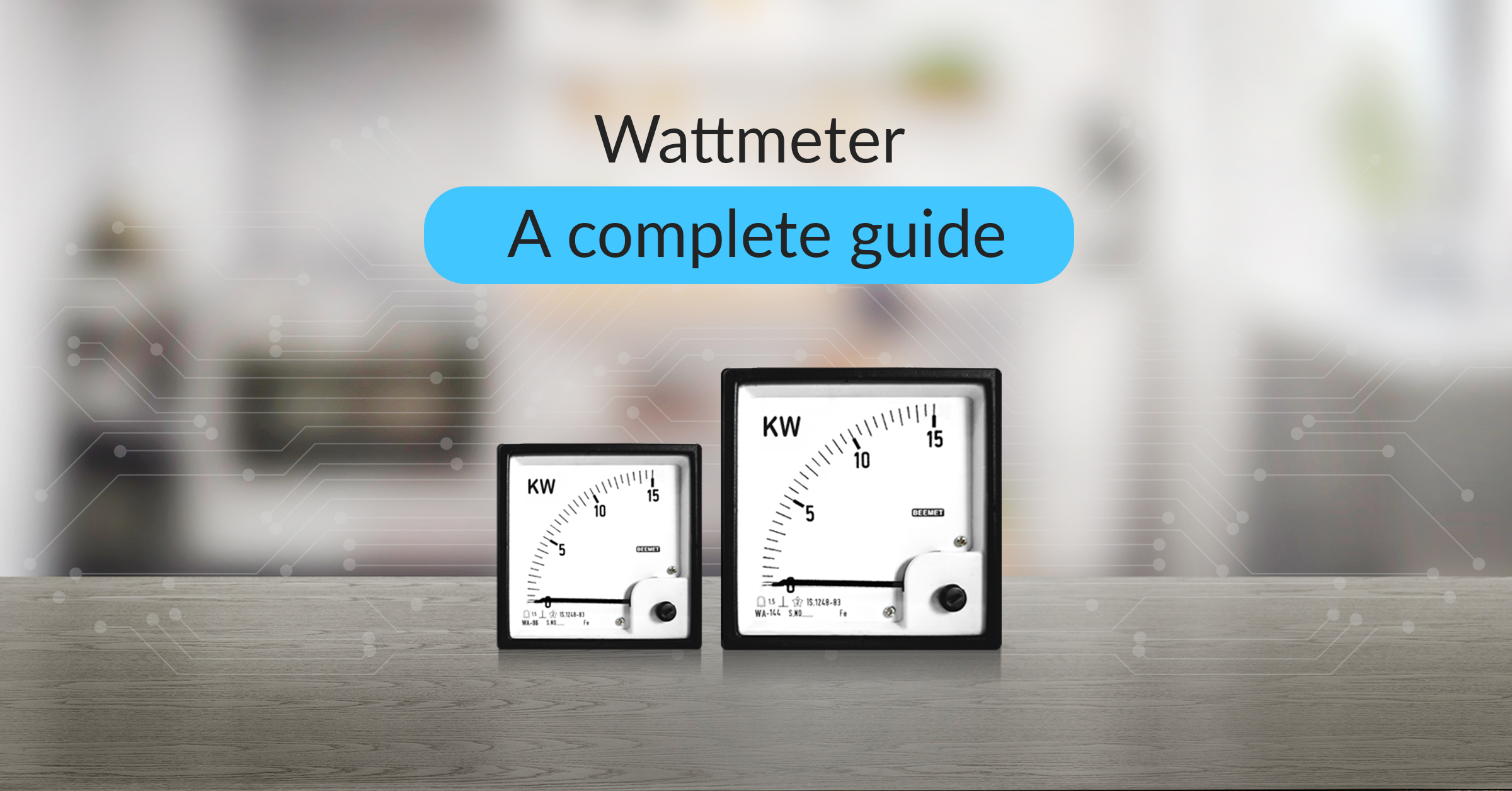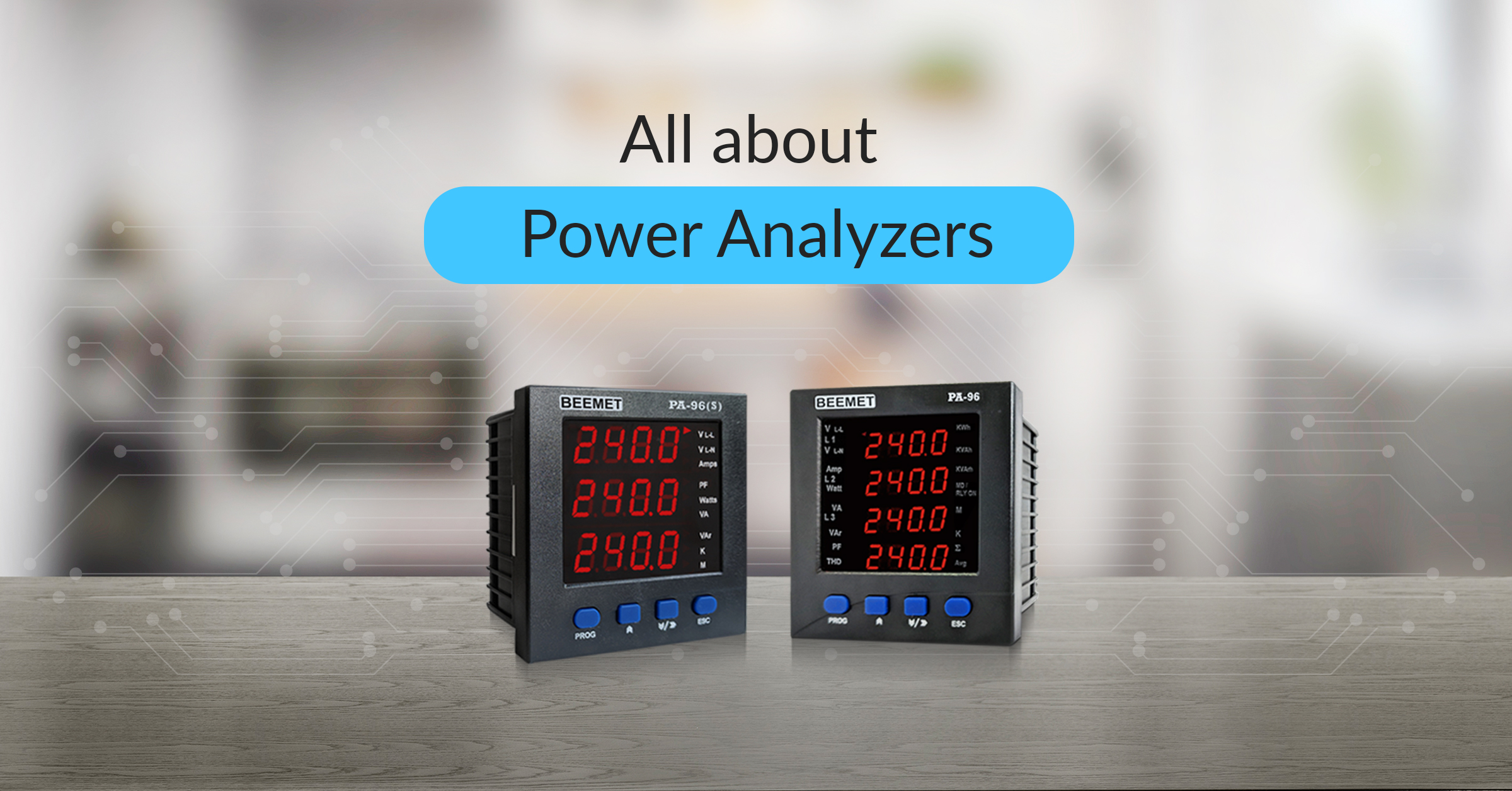In this blog, we will learn about hour meter in detail that includes different types of hour meters, their working principle, applications, advantages, and many more.
Have you ever wondered how mechanics know when a lawnmower needs maintenance, or how rental companies track the usage of their equipment? The answer lies in a small but mighty device called an hour meter.
What is an Hour Meter?
An hour meter is a device that calculates and displays the total operational time of a machine. It accumulates the hours as the machine operates in harsh environments. These devices can endure extreme temperatures, dust, moisture, and vibrations which ensures precise tracking.
Early hour meters were mechanical devices. Today, however, electronic hour meters are the dominant force. They offer greater accuracy and functionality. They play a vital role in various industries by avoiding breakdowns and extending equipment life.
Working Principle of an Hour Meter:
The hour meter typically connects to the engine or machine using screw terminals or wire leads. When the engine starts, it sends an electrical signal to the hour meter’s circuit board. This clever circuit board then interprets the signal, calculates the elapsed time, and displays it on a digital readout – often with tenths of hours for precise tracking.
Applications of Hour Meters
Construction:
Contractors rely on hour meters to schedule preventive maintenance for a wide range of equipment to ensure timely servicing, prevent breakdowns, avoid costly repairs, and keep projects on schedule.
Agriculture:
Farmers depend on hour meters to track usage on tractors, harvesters, irrigation pumps, and other essential farming equipment to schedule maintenance and optimise equipment usage.
Rental Companies:
Hour meters ensure fair billing by tracking the usage of rented equipment like generators, power tools, pressure washers, lighting equipment, and floor cleaners. This eliminates disputes and ensures accurate charges based on actual running time.
Power Generation:
Hour meters play a critical role in monitoring the runtime of generators. They can track generators powered by diesel, natural gas, or solar energy. This way companies can schedule preventive maintenance on their generators.
Aviation:
Hour meters track the flight time of aircraft engines to minimise the risk of in-flight failures.
Advantages of Hour Meter:
Planned Maintenance:
Hour meters enable scheduling preventive maintenance based on manufacturer recommendation or actual usage by tracking time. This will prevent unexpected breakdowns that can cause costly downtime and labor charges.
Warranty Tracking:
Hour meters with tamper-proof features, like those offered by BEEMET, help ensure warranty coverage by providing a verified record of a machine’s usage. This eliminates any confusion about whether a machine is within the warranty period.
Improved Efficiency:
Hour meters can be used to improve operational efficiency. Thye can easily schedule maintenance during off-peak hours. This helps optimize equipment usage and maximze efficiency.
Cost Savings:
Hour meters can help reduce fuel costs. By identifying equipment that is idling excessively, companies can take steps to improve operational practices and optimize fuel consumption
Types of Hour Meters:
These electrical meters come in various configurations to suit different needs such as:
Analog hour meters:
These meters display the time on a dial with a needle. They are often preferred for a quick visual check of the operating time.
Digital hour meters:
These meters provide a more precise readout. They typically display hours and tenths of hours on an LCD screen. This helps to track the equipment usage more accurately.
AC hour meters:
These meters are designed for equipment powered by alternating current (AC) which is the most common type of electricity in homes and businesses.
DC hour meters:
These meters are used with equipment powered by direct current (DC), such as battery-operated machinery or solar power systems.
Panel Mount hour meters:
These meters are permanently installed on a dashboard or control panel. They offer a clean, professional look and are ideal for long-term use on frequently monitored equipment.
Clamp On hour meters:
These meters are temporary and attach to the engine’s spark plug wire using an inductive clamp. They are a convenient option for short-term tracking or for equipment that doesn’t have a designated spot for a panel mount meter.
Get Hour Meters with BEEMET:
BEEMET is a leading manufacturer of high-quality hour meters known for their robust design, exceptional durability, precise tracking, clear digital displays, and various bezel options that can fit perfectly for your application.
Contact us today to discuss your requirements. Our knowledgeable customer support team will be happy to help you choose the perfect hour meter for your specific application.
FAQs:
Q: How do I choose the right hour meter for my application?
A – Choosing the right hour meter depends on several factors such as power Source, mounting style, readout preference.
Q: How can I extend the lifespan of my hour meter?
A – By following these tips, you can help extend the lifespan of your hour meter:
- Ensure proper connection to the power source
- Secure mounting to avoid damage from vibrations.
- Install the hour meter in a location shielded from extreme temperatures, dust, and moisture.
- Avoid rough handling or excessive force when installing or removing the meter.
Q: What happens if my hour meter malfunctions?
A – A malfunctioning hour meter can lead to inaccurate readings and missed maintenance intervals. If you suspect your hour meter is not working properly, consult the user manual for troubleshooting steps. If the issue persists, contact the manufacturer for warranty replacement or repair options.
Q: Are there any legal requirements for using hour meters?
A – In some industries, regulations might mandate the use of hour meters for specific equipment. It’s important to check with relevant regulatory bodies to determine any legal requirements for hour meter usage in your industry.



